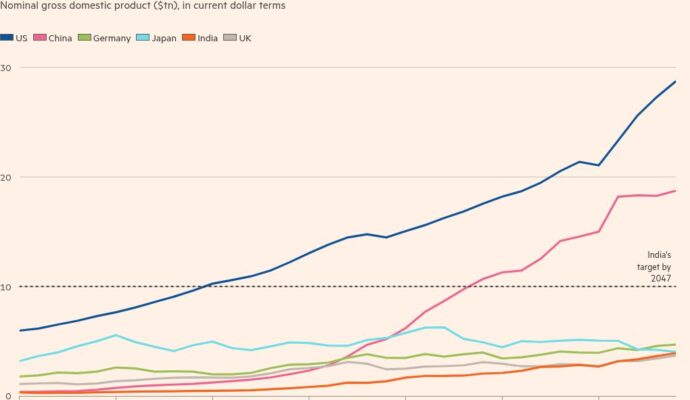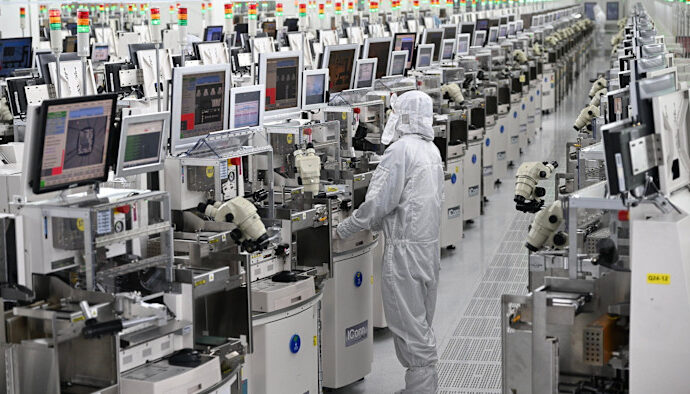Receive free Electric vehicles updates
We’ll send you a myFT Daily Digest email rounding up the latest Electric vehicles news every morning.
Chinese ride-hailing group Didi has abandoned its self-driving car ambitions with the sale of its unit to electric-vehicle maker Xpeng, as new entrants in the EV industry find it harder to gain production licences from Beijing.
The business, which was established in 2016 and spun out three years later, will be sold for HK$5.84bn ($744mn), the two companies said on Monday. The unit had been developing a car project known internally as Da Vinci, which involved taking a stake in heavily indebted state-backed automaker Guoji Zhijun and making cars at its plant in the south-eastern city of Ganzhou.
However, the project faced difficulties obtaining an EV production licence, as officials delayed and tightened approvals to address growing overcapacity in the industry. Chinese electric-car makers have cut back production, with the utilisation rate of Chinese EV factories as low as 30 per cent, Citi analysts estimated this month.
Didi will discontinue its carmaking efforts and work with Xpeng in other areas, including operating Xpeng’s models on Didi’s ride-sharing platform and providing marketing, financial and insurance services, as well as charging, robotaxis and international market expansion, the companies said.
Xpeng said it would leverage Didi’s project to help it launch an EV model next year under its Mona brand, targeting the mass market at a price point of about Rmb150,000 ($20,000).
Didi will acquire 3.25 per cent of Xpeng’s shares upon completion of the deal, which could increase to 5.26 per cent if the new model hits an annual sales target of 180,000 units for two consecutive years.
Last month, Xpeng sold a 5 per cent stake to German car giant Volkswagen for $700mn as part of a deal to jointly develop two Volkswagen-badged EV models for the Chinese market by 2026. Analysts said the agreement would improve Xpeng’s finances and supply chain management.
Xpeng’s Hong Kong-listed shares rose as much as 16.2 per cent on Monday after news of the partnership with Didi.


